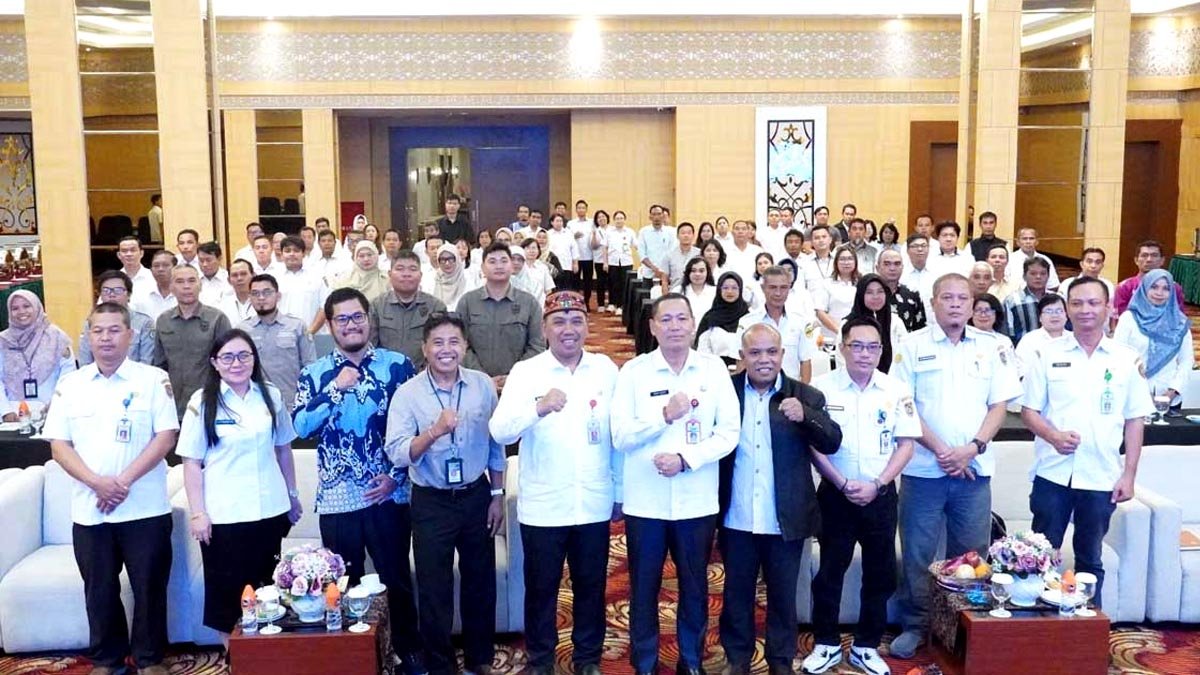PALMOILMAGAZINE, PALANGKA RAYA – The Central Kalimantan Provincial Government is ramping up efforts to transform the palm oil sector toward sustainable, inclusive, and competitive governance. A key step is the Technical Guidance Program (Bimtek) for strengthening the capacity of teams tasked with collecting data on smallholder palm oil plantations, organized by the Provincial Plantation Office at Hotel Aquarius, Palangka Raya, on Wednesday.
The event was officially opened by Yuas Elko, Expert Staff to the Governor for Economy, Finance, and Development, representing the Regional Secretary. In his remarks, he emphasized the importance of this program as a turning point in improving smallholder palm oil governance.
“Make this activity a milestone for building better and more dignified governance in smallholder palm oil plantations,” he said, as Palmoilmagazine.com quoted from the Central Kalimantan Provincial Government, Thursday (Aug 21, 2025).
Head of the Plantation Office, Rizki Badjuri, also highlighted that valid data and an integrated information system are critical tools for preparing stakeholders to meet both national and global challenges, particularly the growing demands for sustainability and traceability in export markets.
Palm Oil: A Backbone of the Regional Economy
Palm oil plantations remain a cornerstone of Central Kalimantan’s economy. Beyond driving regional economic growth, they serve as the primary livelihood for thousands of smallholder farmers and their families.
For 2025, the provincial government has set a target of registering 4,000 smallholders through comprehensive, accurate, and integrated data collection. This dataset will guide policy formulation and the development of fair and sustainable programs for smallholder palm oil.
According to Yuas Elko, in 2024, through the Palm Oil Revenue Sharing Fund (DBH Sawit) scheme, data was collected from 1,000 smallholders across several districts. These included 150 farmers in Kapuas, 200 in Lamandau, 230 in Sukamara, 200 in Pulang Pisau, and 284 in Seruyan, all of whom obtained Smallholder Cultivation Registration Certificates (STDB).
“Those figures still need to be updated and verified. The next phase will involve field inspections and mapping in 2025,” Yuas explained.
Through this initiative, the provincial government hopes that smallholder palm oil data collection will not merely serve as statistical records, but as a key instrument in realizing transparent, sustainable, and impactful governance—benefiting both farmers and the regional economy. (P2)
